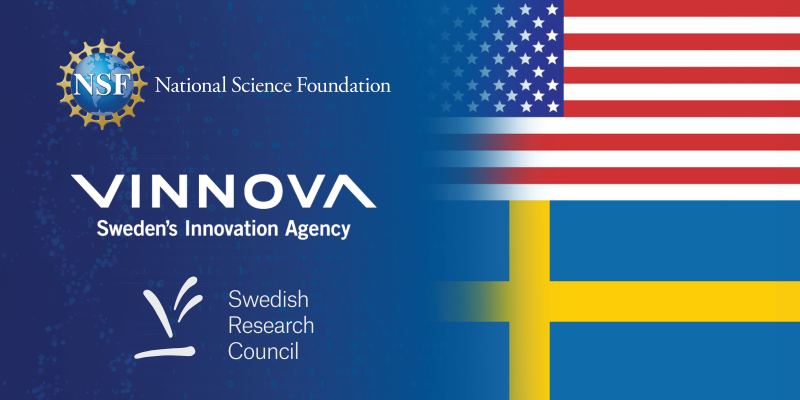NSF partners with Sweden to advance research and innovation
NSF's Convergence Accelerator to welcome Swedish researchers and innovators to participate on chemical sensing track
The U.S. National Science Foundation and Sweden signed a memorandum of understanding to advance research and innovation efforts aligned to each nation's priorities and to collaborate on research that advances solutions to pressing societal, national and geostrategic challenges. NSF will collaborate with two Swedish government agencies advancing research and innovation — the Swedish Research Council (or Vetenskapsrådet, in Swedish) and Vinnova, Sweden's innovation agency.
"International partnerships are vital to advancing scientific research across the global enterprise," said NSF Director Sethuraman Panchanathan. "I am delighted NSF is partnering with Sweden. Together, we will synergize our research and innovation communities to strengthen the interplay between our countries and to enhance the full life cycle of discovery and innovation."
The first cooperative research activity will be through NSF's Convergence Accelerator, a program of the Directorate for Technology, Innovation and Partnerships, TIP, designed to bring multiple disciplines, diverse expertise and varied sectors together to develop tangible solutions to address complex societal and economic challenges. In March 2023, the program announced its upcoming convergent research track topics for its 2023 solicitation, including a topic on chemical sensing applications. Swedish researchers and innovators will have the opportunity to submit proposals to lead or be a part of a multidisciplinary team for the Convergence Accelerator's Track L: Real-World Chemical Sensing Applications. The program's 2023 solicitation is expected to be released in the coming weeks.
"We hope to enable diverse teams from our two nations to solve timely chemical sensing challenges in our first U.S.-Sweden cooperative research activity through the Convergence Accelerator program," said Erwin Gianchandani, NSF assistant director for Technology, Innovation and Partnerships. "Together, such use-inspired research could ultimately lead to solutions that directly and positively impact people's everyday lives today and for future generations to come."
For more than 70 years, NSF has recognized the central role that partnerships play in achieving the United States' research and development objectives. To learn more about NSF's partnership activities, visit nsf.gov.

